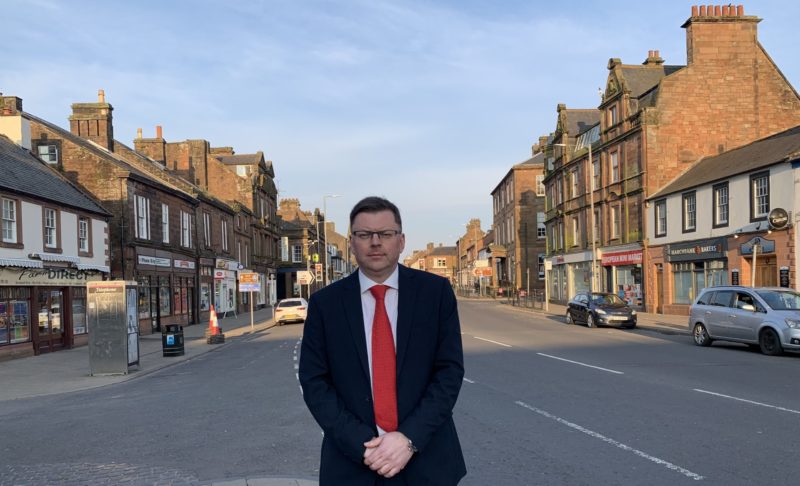Colin Smyth MSP

South Scotland MSP and Scottish Labour’s Shadow Cabinet Secretary for Net Zero, Energy & Transport & Rural Affairs Colin Smyth has once again held the Scottish Government to account, as the region continues to rebuild after devastating Storm Arwen.
Speaking during a debate on the subject in the Scottish Parliament last week, the local MSP re-iterated the different parts of the region which were hit by the storm, many of whom are still recovering. He pressed Deputy First Minister John Swinney on previous commitments he gave for the Scottish Government to consider funding the replacement of two historic footbridges washed away on the River Annan during recent floods and repairs to Drummore Harbour.
During the debate Colin Smyth told the Scottish Parliament: “Just weeks before storm Arwen, my region suffered devastating flooding. In Dumfries—the largest town in Scotland that floods regularly but still has no flood protection scheme—the banks of the River Nith burst again. However, Government funding for flood protection schemes is oversubscribed for the next five years.
“On the River Annan, two historic footbridges—the Cuthbertson memorial bridge and the Diamond Jubilee bridge—were washed away by the flood.
“Weeks later, in Drummore, in the west of the region, a 40-foot section of the harbour wall was destroyed by storm Barra.
“I know that the Deputy First Minister knows those issues very well; he visited Annan to see the damage for himself, and he told Parliament that the Government was considering what support it could give for reinstatement of the footbridges in Annan and of the harbour wall in Drummore. I hope that the Deputy First Minister and the Government will be true to their word and that funding will be allocated to those communities for the devastating impact of the storms.
“In the long term, I hope that we will see additional support to councils and communities for building community resilience and continuing to improve our response to emergencies.”
He continued: “We know that there were significant failings in the response, in particular from energy firms such as Scottish Power in my area, in terms of information—or, rather, misinformation—that was given to people, many of them vulnerable, who wondered when their homes would have power again.
“There are also serious questions to answer about the robustness of the network in rural communities. The situation would not have happened in our cities, where the energy network is underground. I await the outcome of the review of the energy networks’ response by Ofgem and the UK Government.
“I also welcome the Scottish Government’s review of its response to the emergency, and I agree with many of its recommendations. However, I think that we need to go further; I will highlight just two areas where we need to do so.
“As the review highlights, the statutory responsibilities to manage emergencies in Scotland are set out in the Civil Contingencies Act 2004 and the Civil Contingencies Act 2004 (Contingency Planning) (Scotland) Regulations 2005. They place six duties on category 1 responders, and a seventh on local authorities in respect of business continuity. However, over the past 17 years, much has changed in how we respond to emergencies, and building resilience is now key.
“In my home area—Dumfries and Galloway—I have seen the growing importance of community resilience groups, and the impressive work by the council in promoting, supporting and harnessing the huge commitment of volunteers in those groups. There are now over 80 such groups, all with community resilience local plans in place, and they really stepped up to the mark during storm Arwen.
“However, given that the need for a front-line response will continue to grow as the frequency of such emergencies grows, I wonder whether it is time for the Government, in consultation with local authorities, to consider adding an eighth duty—that councils must promote community resilience, in the same way as they are required to promote business continuity. Crucially, that duty would need to come with funding, and one of my concerns is that current support for councils is not adequate for dealing with the emergencies that they face.”
